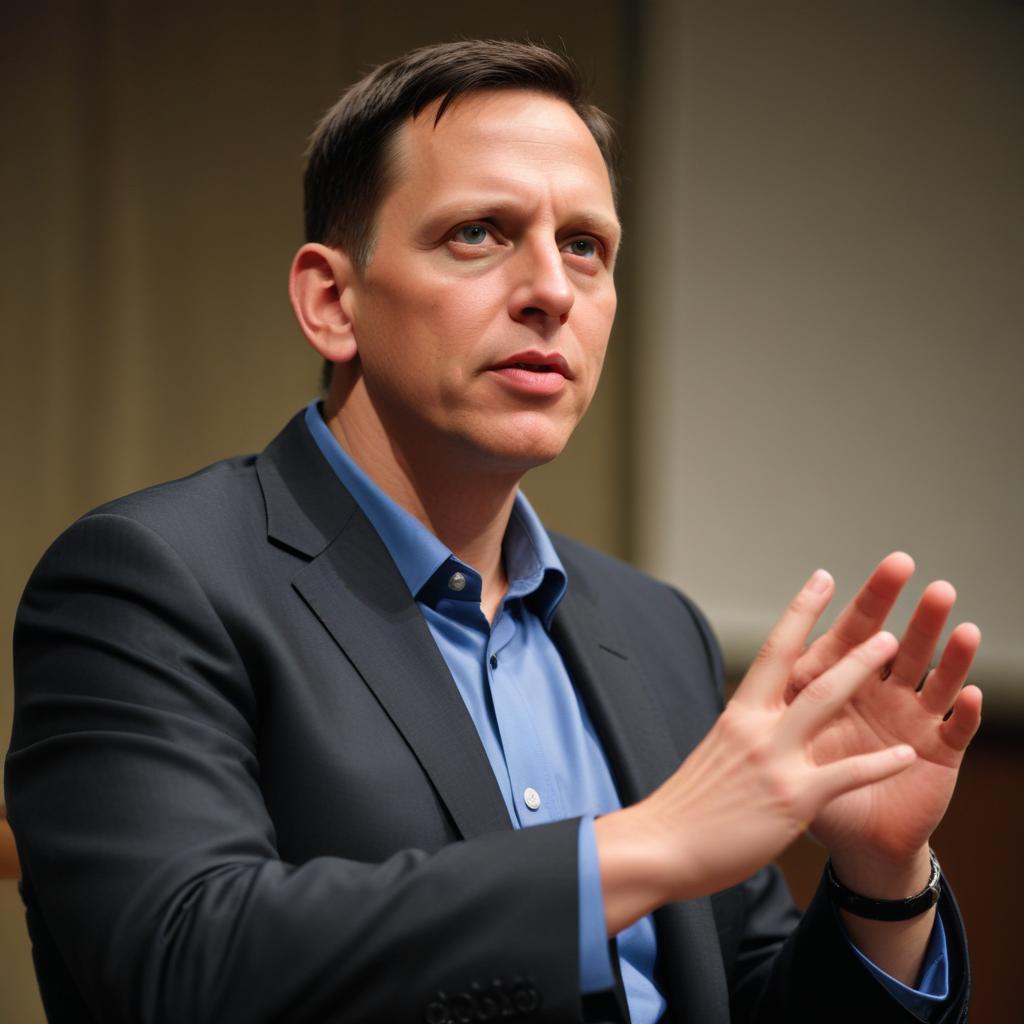Tech mogul Peter Thiel, despite his anti-academia stance, recently delivered off-the-record lectures on the Antichrist, attempting to emulate his revered professor René Girard. These meandering talks reveal Thiel grappling with his own immense power, critiquing perceived global threats through a distinctly Silicon Valley lens, and ultimately highlighting contradictions in his worldview.
Peter Thiel, the billionaire venture capitalist famously critical of academia, recently gave four off-the-record lectures in San Francisco on the Antichrist. These talks, previously workshopped at prestigious universities, show Thiel attempting to replicate the syncretic intellectual style of his admired Stanford professor, René Girard. However, the author suggests Thiel's efforts often resemble pulp fiction rather than profound philosophy. The lectures reveal Thiel's struggle to 'disidentify from his own power,' despite his significant influence in politics and technology, funding companies that harness data and support far-right movements. Thiel, who became wealthy outside traditional academia and advocates against college, has long criticized universities as 'diversity group-think' bastions. Yet, he frequently engages with academics, seeking feedback on his 'Antichrist material,' possibly because, as one theologian notes, few in his immediate circle challenge him. The lectures are described as a 'bizarre thicket of his own references,' including Japanese manga and graphic novels, where he identifies figures like Eliezer Yudkowsky, Nick Bostrom, and even Bill Gates as potential Antichrist candidates. Thiel's relationship with academia is paradoxical; while he disdains it, he remains deeply influenced by his Stanford education and Girard's 'mimetic theory.' He argues that humanity is both 'too apocalyptic' and 'not apocalyptic enough,' proposing the Antichrist as a holistic force that brings about the end of the world, sometimes even by pretending to forestall it (the 'Katechon'). He defines the Antichrist as forces opposing a one-world state, global regulatory regimes, and those against AI regulation, famously identifying climate activist Greta Thunberg as 'Antichrist-like' but not fellow VC Marc Andreessen. The article critiques Thiel's Antichrist vision as 'Silicon Valley-coded,' reflecting the specific anxieties of a niche tech elite. Thiel simultaneously critiques universities for their inefficiency (a libertarian view) and for failing to consider 'the totality' (a theological view), seemingly to justify his own autodidacticism. The author questions Thiel's double standards, noting his rigorous demands for quantifiable knowledge from others while engaging in speculative theorizing himself. Ultimately, the article suggests Thiel's lectures are less about delivering profound meaning and more about his personal struggle with power, perhaps a 'Girardian play with doubles,' where the Antichrist's description might even apply to Thiel himself. His 'excessive esotericism' allows him to maintain a position of 'bemused contemplation,' avoiding clear accountability for his ideas and influence.



